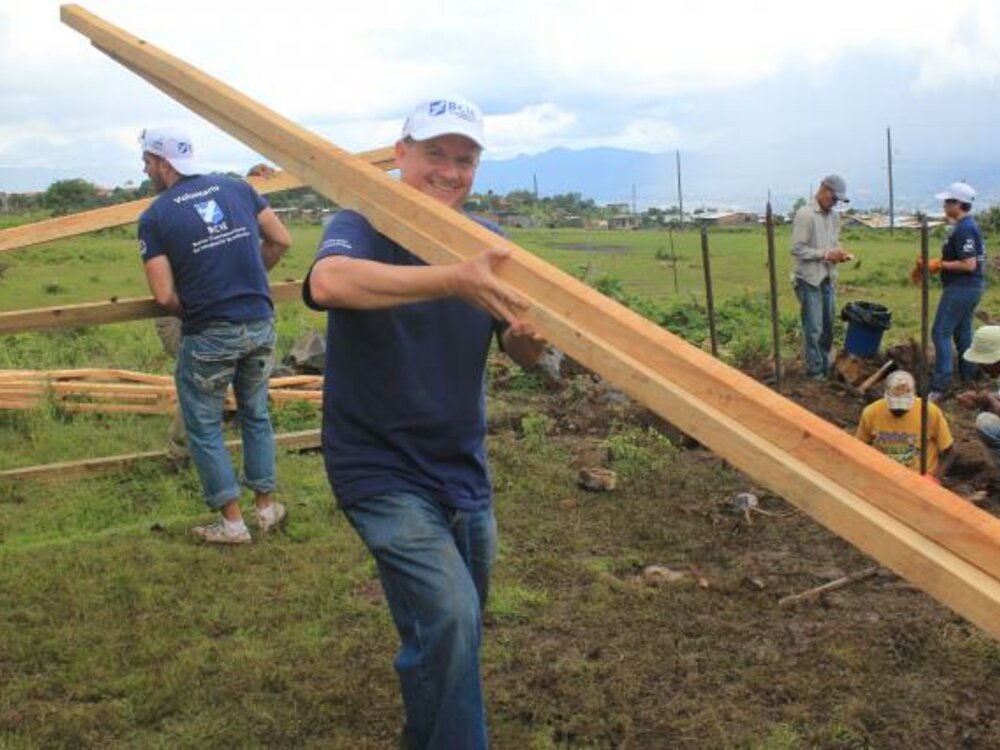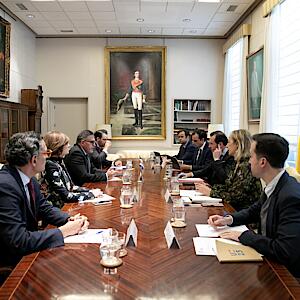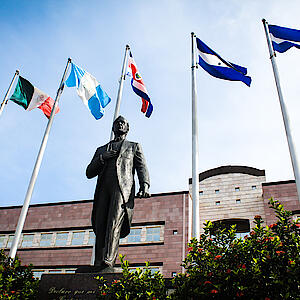CABEI and TECHO support the children of Santa Clara

CABEI and TECHO support the children of Santa Clara
Tegucigalpa, October 2, 2014.- In order to provide integral and sustainable support to communities that have benefitted from the construction of emergency housing, this year the Central American Bank for Economic Integration (CABEI) and TECHO, a nonprofit organization that mobilizes volunteers to fight extreme poverty in Latin America by constructing transitional housing and implementing social inclusion programs, have joined forces to support the children of the community of Santa Clara by constructing a Child Care Center.
Santa Clara is a vulnerable community with limited economic means located in the northern part of the Honduran capital, Tegucigalpa. Over the past three years, CABEI volunteers have constructed a total of 15 houses for families who lacked this basic need.
With the support and guidance of TECHO, the CABEI volunteers gave a hand to residents of Santa Clara in order to construct a Child Care Center to benefit close to 230 families.
This represents a milestone for Honduras since it is the first time that, in alliance with TECHO, there has been a project which supports the families benefitted with emergency housing to provide adequate care for their children so that the parents can go to work knowing that their children are in a healthy environment.
CABEI Executive President Dr. Nick Rischbieth emphasized that the Bank’s Institutional Strategy, “Competitiveness with Integration and Social Development,” establishes a priority to improve the quality of life of Central Americans through the sustainable development of the region and its resources and through balanced economic and social development.
The CABEI volunteers took advantage of the occasion to hold a Honduran Children’s Day celebration for the young people in the community. It was a joyful occasion with abundant sweets, piñatas and games.
To date, the CABEI – TECHO alliance has borne significant fruit, benefitting a total of 85 vulnerable families in the Central American region with the construction of an equal amount of emergency houses.
In coming months, parallel efforts will be carried out in the other Central American countries in vulnerable towns, communities, villages and hamlets where TECHO works.






